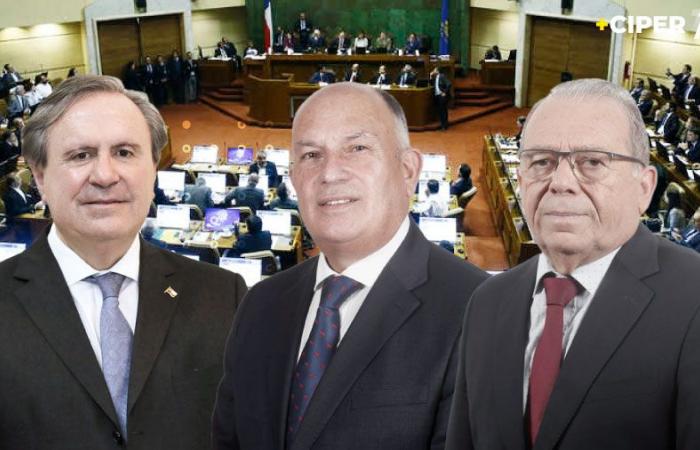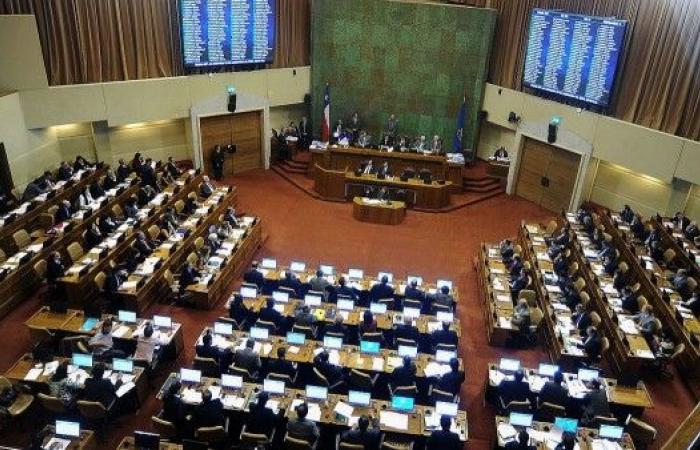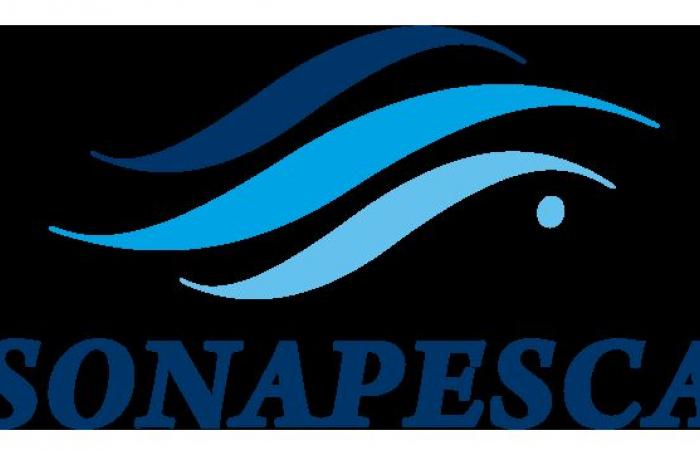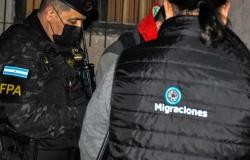The New Fishing Law aims to leave behind the current regulations, marked by opaque links between companies in the sector and legislators, in a process that culminated in convictions for a senior executive of a company in the sector and a senator, for tax crimes, bribery, bribery. and tax fraud, respectively. The debate on the project has just begun in the Chamber’s Fisheries Committee, but it has already raised an alert due to the links between companies and parliamentarians: deputies Bobadilla (UDI), Moreira (UDI) and Berger (ind-RN), presented 211 indications copied from a legal technical report from the business association Sonapesca. Some of these proposals limit artisanal fishing and seek to eliminate the increase in penalties proposed by the bill.
The Fisheries, Aquaculture and Maritime Interests Commission of the Chamber of Deputies began to debate the indications of the new Fisheries Law, a project that the government entered into at the end of 2023. The initiative mainly pursues two objectives: to establish new legal bases for this area and to clean up the legislative process that originated the current law, marked by opaque relations between companies in the sector and some legislators, a process that culminated with former senator Jaime Orpis convicted of treasury fraud and bribery, and which persists as one of the most emblematic cases of corruption in recent years. In that case, the former general manager of Corpesca, Francisco Mujica, was also convicted, who agreed to a sentence remitted in 2018 for tax crimes and bribery. Although the debate on the project is just beginning, there are already signs that, once again, the possible influence of the private sector in the parliamentary discussion will have to be closely monitored.
CIPER reviewed the indications that were presented and verified that 76% of the package sponsored by deputies Sergio Bobadilla (UDI), Cristhian Moreira (UDI) and Bernardo Berger (ind-RN) are a copy paste of a report that the business association Sonapesca made available to the Commission on May 2, titled “Legal Technical Report on the Fisheries Law project 16500-21”.
As indicated at the beginning of the session which was held four days later, the union – which brings together 11 fishing associations throughout the country – commissioned the preparation of this analysis to the consulting firm Acuiestudios, which in more than 200 pages broke down the government’s proposal and proposed changes to the majority. of your articles. One of the authors of the report was the lawyer Jéssica Fuentes, a former official of the Undersecretariat of Fisheries during the first government of Sebastián Piñera, when the controversial previous law was created (review the Sonapesca document).
In total, deputies Bobadilla, Moreira and Berger presented 276 indications. Of them, 211 are exactly the same as those of Sonapesca and another 41 present slight differences in wording with the union’s document (see the indications of the parliamentarians). Initially, the indications also bore the signature of deputy Eric Aedo (DC), but, as he told CIPER, shortly after signing them he decided to withdraw his support for them.
One of the deputies who presented the proposals for change, Sergio Bobadilla, is a well-known name in the industry. The former president of the UDI was also involved in the previous process, when he was summoned to testify in 2019 for his relationship with Asipes (the Association of Fishing Industrialists of Biobío), after the Public Ministry detected that between 2014 and 2016 that group business disbursed $26 million to a consulting firm run by Bobadilla, who at that time was not a congressman (see CIPER report). He had been a member of the Chamber until 2014 and then returned to occupy a seat in 2018.
Although deputies and senators usually collect proposals from companies, trade associations, federations and experts during legislative debates, and then present them as indications, commission sources told CIPER that this case falls outside the norm due to the high number of suggestions copied to Sonapesca.
The context also plays an important role, since it is a discussion that aims to avoid the vices that stained the last Fisheries Law that was processed in Congress. This process is remembered, among other things, because it became evident that some fishing companies maintained opaque ties with parliamentarians so that they promoted articles that benefited them and because it was the starting point of a trial that sentenced former senator Orpis, who was convicted, to prison. He has been free since 2023 (consult the CIPER archive on the subject).
Although there are no warning signs of that magnitude in the new discussion, sources from the Fisheries Commission maintain that the similarities between the Sonapesca document and the indications of the three deputies show that close attention will have to be paid to the influence that the different actors involved in the debate.
Some of the indications extracted from the business association’s report directly affect artisanal fishing. Others seek to prevent recidivism in marketing or storing prohibited species from being punished with minor imprisonment to the minimum degree, as proposed by the government project (see subsequent subtitle).
THE SONAPESCA UMBRELLA
Sonapesca is located at the top of the private sector: it brings together associations such as Asipnor (northern zone), Asipes (Biobío) and Fipes (south austral), and each of them represents the interests of companies such as Corpesca, Blumar and Friosur, respectively. . In sum, under the umbrella of Sonapesca there are nearly 100 fishing companies.
The association is currently chaired by Osciel Velásquez, owner of a shrimp and prawn extraction SME. That position was previously held by Rodrigo Sarquis Said, director of Blumar – a company that was on the radar of justice for illegally financing political campaigns – and cousin of former UDI mayor Pablo Zalaquett, who works as a lobbyist for the same company. Sarquis was one of the attendees at the meals that Zalaquett organized with businessmen and ministers in 2023, revealed by CIPER, which were not recorded in the public lobby registry (see the reports published by CIPER).
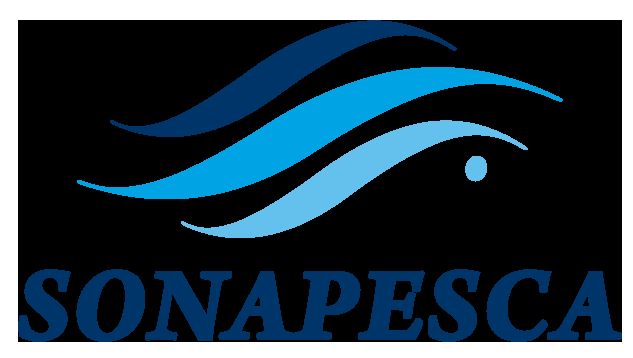
THE DEPUTIES AND SONAPESCA SPEAK
Originally, the document presented by the parliamentarians included the signature of Eric Aedo (DC), who withdrew from the agreement shortly after signing it. The deputy told CIPER that he withdrew his support after his team of advisors reviewed the technical quality of the proposal and after he learned of a “rumor” about the origin of those indications:
– My colleague (Sergio) Bobadilla invited me to subscribe to these indications in support of industrial and artisanal fishing in Biobío and I agreed. But, later, my team of advisors reviewed the content and we decided to withdraw my signature because we didn’t like some of it. Furthermore, I learned of the rumor that these indications were circulating in the minutes of unions and groups, and I am not prepared for that. Approximately ten days ago I informed the commission that I would not support them and that I was withdrawing my signature.
CIPER confirmed with the Chamber of Deputies that Aedo is no longer part of the group bidding for these indications.
Deputy Sergio Bobadilla, referred to in the previous response, responded that “indeed, deputies Moreira, Aedo, Berger and I presented a package of instructions.” He added that, “as was made known to the deputies who signed,” these proposals “largely included” those emanating from Sonapesca.
The UDI parliamentarian – who shares a district with Aedo – also maintained that they were inspired by the union’s report, “considering that the proposals prepared by organizations, associations or experts cannot be considered as indications” during the legislative debate. He added that “we parliamentarians do nothing more than collect, after making a thorough analysis of the report, the indications with which they feel represented” (see his full answer).
Part of these arguments were replicated by deputy Bernardo Berger, who told CIPER that “the origin of the indications has to do with the collection of observations made by people, groups, associations and others related to the fishing sector (… ) Thus, the assessments made by the legal technical report prepared by Acuiestudios” and by fishermen’s federations were mainly taken into account (see his full answer).
For its part, Sonapesca stated that the report was also sent to the Ministry of Economy, through the Undersecretariat of Fisheries, who “also considered some recommendations and presented indications extracted from the aforementioned study.”
Regarding the indications presented by Bobadilla, Moreira and Berger, the union maintained that “it seems obvious to us that parliamentarians from the commission make sense of observations from a study submitted to the Commission and have sponsored these proposals as indications, since the proposed law “suffers from important flaws in legislative form and technique and severe structural defects” (see his full answer).
Deputy Moreira responded through the bench’s communications team that he would not answer the queries sent for this article.
THE “COPY PASTE” OF THE ARTICLES
That the deputies were inspired by the Sonapesca report to present their indications is clear from the first moment the documents are compared. The following table shows a comparison between the first article of the government project, the content of the union’s report and the indications presented by the parliamentarians, respectively:
In this case, the deputies modified the wording of the Sonapesca proposal and did not reproduce its content verbatim. This type of similarity was repeated in 41 of the 252 indications presented by Bobadilla, Moreira and Berger and which have their origin in the association analysis.
The verbatim copy of the proposals was produced in 211 indications and, in the opinion of various experts consulted by CIPER, this formula was used in some of the most important points of the law. In article No. 80, for example, Sonapesca and the deputies seek to modify the reserve area for artisanal fishing, excluding the fishing grounds that are located beyond the first five miles. The following table shows a comparison between the proposals referring to this matter:
Sonapesca and the deputies also propose that, when a fisherman or an artisanal fishing group exceeds the catch quota and their individual responsibility cannot be pursued, the penalty be applied to all members of the organization in which the offender participated. This is how they proposed adding it to article No. 115 of the bill:
Finally, it is worth noting that both the trade association and the three deputies proposed eliminating article No. 312 of the bill, which seeks that the recidivism of transporting, possessing, having, storing or commercializing prohibited hydrobiological resources be punished with “minor imprisonment.” to its minimum degree and the pecuniary sanctions will be doubled.”

